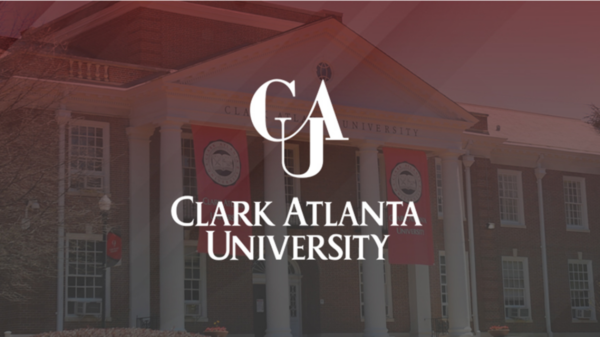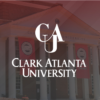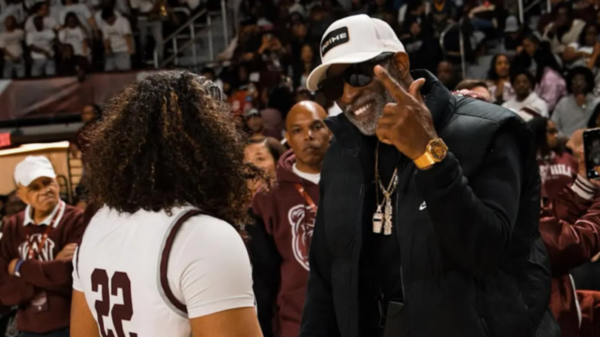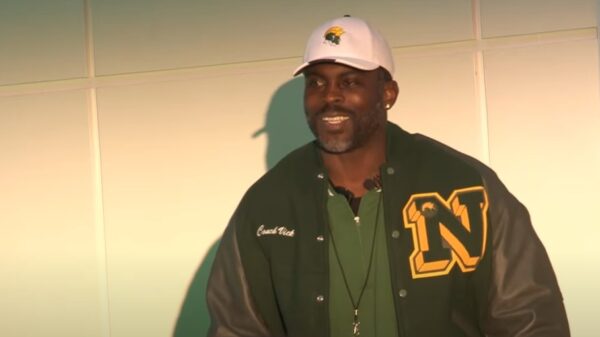Because Of Them We Can
https://www.becauseofthemwecan.com/
By BOTWC Staff

Photo Courtesy of Morgan State University.
Maryland is home to four historically Black colleges and universities, including Coppin State University, Bowie State University, the University of Maryland Eastern Shore and Morgan State University. Recently, the schools have been getting a lot of financial support, winning a $600 million lawsuit against the state for inadequate funding. The 15-year lawsuit just came to a close in favor of the schools.
“With today’s historic settlement of the HBCU litigation, we are finally able to move forward to give every college student in Maryland the chance to succeed,” said Maryland House Speaker Adrienne Jones, the first Black woman to serve as a presiding officer in the General Assembly.
“This settlement marks a historic investment in Maryland’s Historically Black Colleges and Universities. It will enable these valued institutions to expand their academic reach and to assist thousands of students with getting the education they deserve,” Attorney General Brian Frosh added.
Settlement funds will be distributed to the institutions beginning next year, each of the state’s HBCUs receiving $57.7 million annually for the next 10 years. The extra funding is critical to leveling the playing field between the HBCUs and predominately white institutions in the state. The HBCUs will use the funding to create and expand programs, bolster their online class offerings, offer financial aid, faculty training, and more.
Each institution has a rich history with their own unique set of skills and offerings for their students. Bowie State serves as the home school for rich, vibrant talent like actor Myles Frost, who just made history as the youngest solo Tony Award winner for best lead actor in a musical.
Bowie State president, Dr. Aminta Breaux, issued a statement after Frost’s historic win, saying the entire BSU community was “thrilled.”
Last year, Maryland’s oldest HBCU also made history as the first HBCU to have a stop-motion animation studio.
“This is a great opportunity for students to learn valuable skills that will carry them into the professional world of animation. There are a lot of storytelling and narrative elements that have yet to be brought to life via stop-motion animation, especially in the arena of children’s programming. We are looking at this partnership to be an internship and career pipeline that can help diversify the animation industry, which has been a traditionally underrepresented sector when it comes to the voices of people of color, women, LGBTQ and other communities,” said Tewodross Melchishua Williams, chair of the BSU Department of Fine & Performing Arts, via statement.
BSU did it again this year when they made history as the first historically Black university to sponsor national PBS documentaries. Breaux said the latest historic moment was just another example of the school’s commitment to pioneering opportunities for their students and the Black community as a whole.
“Since the first days of our founding in Baltimore with the mission to begin educating the newly emancipated citizens of Maryland, Bowie State University has been a trailblazer. Building on that legacy, we are proud to boldly step up to partner with Maryland Public Television to help bring forward fresh perspectives on the influence of these two powerful champions of freedom that continue to resonate in today’s dialogue on social justice,” said President Breaux.
These offerings could not be possible without adequate funding. According to Morgan State President David K. Wilson, funds have been severely lacking in comparison to their PWI counterparts. After the universities’ collective win against the state, Wilson spoke about the significance of such a victory for the schools and the Black community, saying, “I’m pleased to see this fight has finally come to an end…Morgan and our other HBCUs have been pulling the weight in this state in terms of creating a Black middle class, and we have been doing it without due respect. So, the money is great. We need that, but respect, as well.”
In addition to the settlement fund, Morgan State also received a few other large donations, including $20 million from Morgan State University alumnus Calvin E. Tyler, the largest private donation from a former student in the school’s 154-year-history. They also received a $2.7 million donation to the school’s Athletic Department to revive their wrestling program.
“The purpose behind this donation is to create access and equity which will serve to further diversify the sport of wrestling by providing opportunities for student-athletes that do not currently exist. We are extremely grateful to Mike Novogratz and HBCU Wrestling for this tremendous contribution to Morgan State University Athletics. This gift is the largest in Morgan’s athletics history and believed to be one of the largest donations to any HBCU athletics program from a private donor,” said Edward Scott, vice president and director of Intercollegiate Athletics at MSU.
Now it looks as though the Baltimore HBCU is putting some of that good fortune to use, this time in service of their prospective medical students. Morgan State has just announced that they will partner with Ascension Saint Agnes Hospital to launch a for-profit, private medical school, making history as the first historically Black college or university to open a new medical school in 45 years.
The new school will focus on providing opportunities for underserved minority students interested in pursuing careers in the medical field in Baltimore. They’re looking to give back to the community in a big way, helping students get the resources necessary to live out their dreams.
“Let’s do this for Baltimore, let’s do this for our community…If you want to be a doctor there, you’re going to be a doctor there. That’s the whole important aspect of it. You see it, you dream it and you do it,” said Dr. John Sealey, Founding Dean of the proposed College of Osteopathic Medicine at Morgan State University.
Currently, there’s a shortage of physicians in the U.S., the Association of American Medical Colleges (AAMC) reporting that only about 5% of active physicians in the United States identify as Black or African-American. The new medical school is hoping to boost those stats and create a pipeline in the state of Maryland for more Black physicians.
“There’s a shortage in the next 10 years, anywhere between 35,000 to 120,000 physicians in the United States of America. We want to make sure we’re doing our part in training that next generation and we also want to make sure that the physicians we’re training are coming from the community they’re going to serve,” said Jon D’Souza, Ascension St. Agnes’ Chief Medical Officer.
University officials expect the school to hold nearly 700 medical students and about 150 employees. Focused on expanding their impact even outside of the college and hospital campus, Sealey says the economic windfall from such a school could reach into the billions.
“The economic impact of this school over the course of the next 10 years is probably about $1.2 billion,” explained Dr. Sealey.
The news comes just as we wrap up HBCU Awareness month in September, Ascension St. Agnes looking to support a program that will provide underserved populations of students with a first-class education. One they wouldn’t be able to get otherwise with a dual focus of also serving the city of Baltimore.
“It’s going to have a strong emphasis on population health. That means we don’t just fix a problem when it becomes a medical issue, we work within communities to prevent problems,” D’Souza shared.
The new private medical school is set to open in 2024.









You must be logged in to post a comment Login